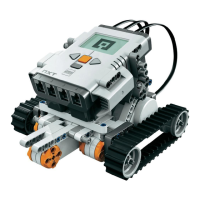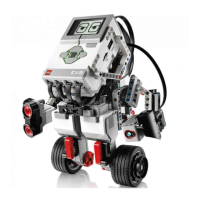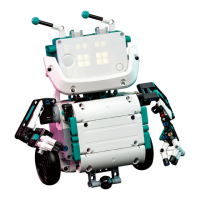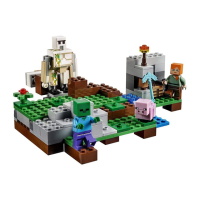timer_SET (value index--)
This word sets the timer described by index to the supplied value.
timer_GET (index--value)
This word places the current value of the timer described by index on the stack.
Page 134
Power Management
pbFORTH includes a simple power management scheme that allows you to turn the unit off. It doesn't actually turn off completely; it just goes into a low power consumption mode until you press
the On-Off button to turn it on. This is exactly the same behavior as with the default RCX firmware. Three words in pbFORTH are related to power:
POWER_INIT (--)
This word initializes pbFORTH's power management.
POWER_OFF (--)
Use this word to turn the RCX off. Note that this does not clear the display, turn off active inputs, or turn off running outputs. It does, however, put the interpreter in a kind of sleep mode; you
should probably do this if you're going to stop using pbFORTH for a while, say overnight.
POWER_GET (address code--)
This word serves two purposes, depending on the value of code. The result is placed in the variable represented by address. pbFORTH provides the RCX_POWER variable for use with this
word. The possibilities are shown in Table 6–10.
Table 6-10. POWER_GET Code and Value Possibilities
Code (hexadecimal) Value
4000 On-Off button state: 0 is pressed, 2 is not pressed
4001 Current battery level
The following example shows how to print out the current battery level:
RCX_POWER DUP 4001 POWER_GET @ .
11E ok
Sounds
Finally, pbFORTH can play the built-in beep sounds of the RCX, although it does not offer the possibility of playing arbitrary notes. The two words related to sound are:
SOUND_PLAY (sound code--)
This word plays the sound described by the sound parameter, which can have the values shown in Table 6-11.
Table 6-11. SOUND_PLAY Sounds
Sound Number Description
0 Short beep
1 Two medium beeps
(table continued on next page)
